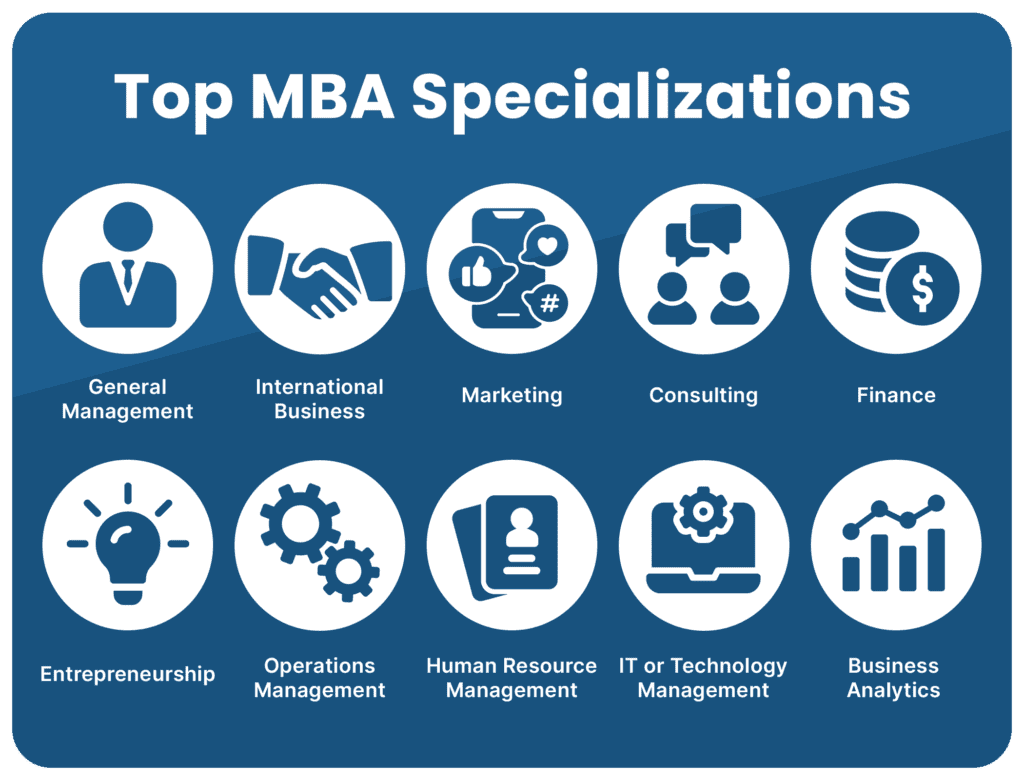In today’s competitive job market, an MBA can be a powerful tool for career advancement. With its comprehensive curriculum and emphasis on developing both hard and soft skills, an MBA can provide individuals with the knowledge, abilities, and network necessary to succeed in various industries and roles. This article explores how an MBA can benefit your career by examining its impact on salary, career progression, and overall professional development.
How an MBA Can Boost Your Career Trajectory
Enhanced Earning Potential
An MBA can significantly increase your earning potential. According to a 2022 survey by the Graduate Management Admission Council (GMAC), MBA graduates earn an average of $115,000 per year in the United States. This is a significant increase compared to the average salary for individuals with a bachelor’s degree.
| Degree | Average Salary (USD) |
|---|---|
| Bachelor’s | $65,000 |
| MBA | $115,000 |
Expanded Career Opportunities
An MBA opens doors to a wider range of career opportunities. It equips you with the skills and knowledge needed to excel in various industries and roles, including management, consulting, finance, and entrepreneurship.
Improved Business Acumen
An MBA program provides you with a comprehensive understanding of business principles, strategies, and practices. This knowledge is invaluable for making sound business decisions, leading effectively, and driving growth within organizations.
Enhanced Leadership Skills
MBA programs often emphasize leadership development, providing students with opportunities to hone their communication, teamwork, and decision-making skills. This makes you a more confident and capable leader, prepared to take on greater responsibilities.
Networking Opportunities
MBA programs offer valuable networking opportunities, connecting you with influential individuals in the business world. This network can provide you with career advice, job leads, and potential mentors.
Specialized Skills
Many MBA programs offer specializations in specific areas like finance, marketing, or data analytics, allowing you to develop deep expertise in a particular field. This specialization can make you a highly sought-after candidate in your chosen industry.
Increased Job Security
In today’s competitive job market, an MBA can give you a competitive edge and increase your job security. It demonstrates your commitment to professional development and your ability to adapt to changing business environments.
Unlocking Your Career Potential: How an MBA Can Transform Your Future
Unlocking Your Career Potential: How an MBA Can Transform Your Future
Enhanced Skills and Knowledge
An MBA program equips you with a comprehensive set of skills and knowledge that are highly sought-after in today’s competitive job market. You’ll gain a deep understanding of business principles, including finance, marketing, operations, strategy, and leadership. This knowledge base allows you to make informed decisions, solve complex problems, and navigate the challenges of the modern workplace.
Networking Opportunities
An MBA program provides a unique platform for networking with peers, faculty, and industry professionals. You’ll have the opportunity to connect with individuals from diverse backgrounds and industries, expanding your professional circle and creating valuable connections that can lead to career advancement.
Increased Earning Potential
Studies have consistently shown that individuals with MBAs earn significantly more than their counterparts without the degree. The enhanced skills and knowledge gained through an MBA program make graduates more competitive in the job market, leading to higher salaries and greater earning potential over time.
Career Advancement and Leadership Opportunities
An MBA can open doors to leadership positions and career advancement opportunities. The program provides you with the skills and knowledge to lead teams, manage projects, and drive strategic initiatives. This can lead to promotions, higher levels of responsibility, and greater influence within your organization.
Industry Specialization and Focus
Many MBA programs offer specialized tracks or concentrations that allow you to focus your studies on a particular industry or area of interest. This specialization can make you a more valuable asset to employers, as you will have in-depth knowledge and experience in a specific field.
Frequent questions
What are the main career benefits of getting an MBA?
An MBA can significantly enhance your career prospects by equipping you with valuable skills and knowledge. It can open doors to new opportunities, boost your earning potential, and provide you with a competitive edge in the job market. Here are some key benefits:
- Increased earning potential: MBA graduates often earn significantly higher salaries than their non-MBA counterparts. A study by the Graduate Management Admission Council (GMAC) found that MBA graduates earn an average of $100,000 more per year than those with only a bachelor’s degree. This higher earning potential is attributed to the skills and knowledge gained during the MBA program, which are highly valued by employers.
- Career advancement: An MBA can help you advance your career by providing you with the necessary skills and knowledge to take on leadership roles. The program teaches you how to manage people, make strategic decisions, and solve complex business problems. These skills are essential for success in management positions.
- Career transition: An MBA can also help you transition to a new career. If you are looking to change industries or explore new career paths, an MBA can provide you with the foundational knowledge and skills needed to succeed in your new role. The program can also help you network with professionals in your target industry and build your professional brand.
- Increased job security: In today’s competitive job market, having an MBA can make you a more attractive candidate to employers. This can increase your job security, especially during times of economic uncertainty. Employers are more likely to retain employees with advanced degrees, as they are considered to be valuable assets to the company.
How can an MBA help me develop my business skills?
An MBA program is designed to equip you with the essential skills needed for success in the business world. It covers a wide range of subjects, including:
- Finance: You will learn about financial statements, accounting, budgeting, and financial analysis, which are essential skills for managing a business.
- Marketing: You will study marketing strategies, consumer behavior, and brand management. This knowledge is crucial for understanding how to attract and retain customers.
- Management: You will learn about leadership, organizational behavior, and strategic planning. These skills are essential for leading teams and driving business growth.
- Operations: You will study how to manage supply chains, optimize production, and improve efficiency. These skills are critical for running a successful business.
- Entrepreneurship: You will gain knowledge about starting and running your own business, from developing a business plan to securing funding and managing growth.
These are just a few examples of the business skills you will develop during an MBA program. The specific skills covered will vary depending on the program you choose, but all MBA programs are designed to provide you with the essential tools and knowledge to succeed in the business world.
What are the different types of MBA programs available?
There are a variety of MBA programs available to suit different career goals and interests. Some of the most common types include:
- Full-time MBA: This is the traditional MBA program, typically requiring two years of full-time study. It is designed for students who are looking to make a significant career change or advance their careers quickly.
- Part-time MBA: This program allows students to work full-time while pursuing their MBA. It is ideal for students who want to balance their studies with their current career.
- Executive MBA: This program is designed for experienced professionals who want to enhance their leadership skills and advance their careers. It typically involves intensive weekend or evening classes.
- Online MBA: This program allows students to study remotely, making it a convenient option for those who are unable to attend traditional classes.
- Specialized MBA: Some schools offer MBA programs that focus on specific industries or areas of specialization, such as finance, marketing, or healthcare. These programs provide students with in-depth knowledge and skills in their chosen field.
Choosing the right MBA program is important. Consider your career goals, work experience, and personal circumstances when selecting a program. Research different schools and programs to find one that best fits your needs and interests.
Is an MBA worth the investment?
An MBA can be a significant financial investment, but for many people, it is a worthwhile investment in their future. The potential career benefits of an MBA, such as increased earning potential, career advancement, and job security, can outweigh the cost of the program. However, it is important to carefully consider your personal circumstances and financial situation before making a decision.
Here are some factors to consider when evaluating the return on investment of an MBA:
- Your career goals: If you are looking to advance your career significantly, an MBA can be a valuable investment. However, if you are happy with your current position and do not see a need for further education, an MBA may not be necessary.
- Your financial situation: An MBA can be expensive, so it is important to make sure you can afford the program without incurring excessive debt. Consider the tuition fees, living expenses, and opportunity cost of not working full-time.
- Your desired industry: Some industries value MBAs more highly than others. If you are looking to work in a highly competitive industry, such as finance or consulting, an MBA can be a significant asset.
- The reputation of the school: The reputation of the school you choose can impact the value of your MBA. Schools with strong alumni networks and high placement rates often have graduates who earn higher salaries.
It is important to weigh the potential benefits and costs of an MBA carefully before making a decision. If you are unsure whether an MBA is right for you, consider consulting with a career counselor or a financial advisor.



